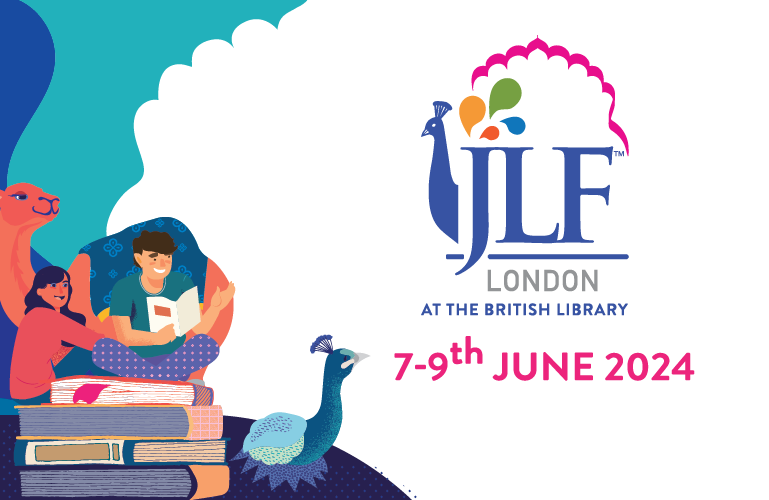

Scenes From a Marriage
Meena Kandasamy, Neelima Dalmia Adhar and Jaishree Misra in conversation with Ashok Ferrey
By Malavika Subramanyan, Official ZEE JLF at The British Library Blogger
This was a fascinating session about writing, marital abuse, #MeToo, and Freud (except it was mostly Gandhi).
One of the parameters of success in a society is its marriages; and marriages are usually judged as successful in terms of their longevity. But often, a ‘broken’ marriage can be an act of escape, self-assertion, and taking back power over one’s life.
Thirty years ago, Jaishree Misra escaped an unhappy arranged marriage and married her first love (a journey she novelized in Ancient Promise). Misra’s A House For Mr Misra is about the two years that she and her husband spent building a house by the beach in Kerala.
Despite being the only Indian state to achieve 100% literacy, access to education alone doesn’t dislodge the deep-rooted conservatism in Kerala; change happens slowly, and Misra has seen both sides- the oppression as well as the transformation. A Malayali by birth, Misra’s relationship with her home state has been a difficult one: at once the site of childhood, abuse, and eventual happiness; her relationship with Kerala has followed the trajectory of her own life.
On writing When I Hit You, a powerful account of an abusive marriage, Meena Kandasamy said that the involvement in the craft of writing had provided a certain kind of distance from the harrowing subject matter. The consciousness of the creative process, she said, kept her from becoming overwhelmed by the content in the same way her readers are.
Kandasamy cited the #MeToo movement, which saw a number of women married to left-wing adherents coming forward about the nature of their abuse. Many Marxist men cast fidelity as a bourgeois concept, using free-sex theories to exploit women. Similarly, when these women attempted to go to court – for divorce, or to prosecute their rapists – Marxist intellectual brotherhoods denigrated the justice system as being part of a bourgeois state; they were thus prevented from seeking justice for themselves.
Addressing both Kandasamy and Neelima Dalmia Adhar’s books, Ashok Ferrey observed, “In both cases, the men use ideology as a way of controlling their women.”
According to Adhar, Gandhi was both a saint and a monster. She drew a distinction between the Mahatma, and Mohandas the man, and in her book The Secret Diary Of Kasturba, turned the camera around to look at the woman who knew him as both. What did Kasturba think about think, for example, about celibacy being enforced in her marriage at the age of 35? “Gandhi wouldn’t have been the Mahatma, had Kasturba not been his wife”, she declared confidently.
The casual question of ‘why didn’t she just leave?’ was addressed by both Misra as well as Kandasamy, answering as both writers and women. The cultural sanctity of the marriage bond is such that Misra’s own mother, upon her daughter confiding in her, asked her if it was really that bad. Kandasamy spoke about not just the physical and social isolation that makes it difficult to ask for help, but also the consciousness, especially as a writer, of how a woman’s story is framed in a broken marriage. That is as much of a deterrent: you have to “plot your escape” and frame your own narrative, building up a body of evidence before leaving, to prevent your own narrative being hijacked.
Adhar spoke at length about the autobiographical element to writing Kasturba; growing up as the youngest daughter to a polygamous father, she felt that she had witnessed Kasturba’s life as lived by her own mother, and that informed her writing of Kasturba’s diary.
She also referred to the ways in which women’s sexual energy is objectified and vilified; she related an incident in which Gandhi shaved off the heads of two young girls in order to curb their sexual attractiveness (to his son Manilal). There is an obsession with controlling women’s sexuality in both Adhar’s and Kandasamy’s books, which acts as a mirror to the patriarchal society of India.

Leave a comment